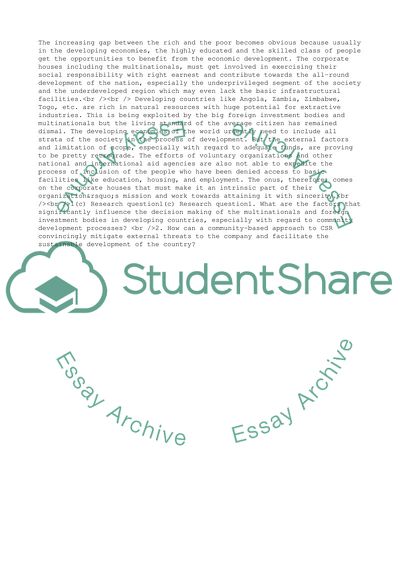Cite this document
(Community-Based Approach in Extractive Industry for Corporate Social Research Paper, n.d.)
Community-Based Approach in Extractive Industry for Corporate Social Research Paper. Retrieved from https://studentshare.org/business/1722661-community-based-approach-for-csr-initiative-case-of-extractive-industry-in-developing-country
Community-Based Approach in Extractive Industry for Corporate Social Research Paper. Retrieved from https://studentshare.org/business/1722661-community-based-approach-for-csr-initiative-case-of-extractive-industry-in-developing-country
(Community-Based Approach in Extractive Industry for Corporate Social Research Paper)
Community-Based Approach in Extractive Industry for Corporate Social Research Paper. https://studentshare.org/business/1722661-community-based-approach-for-csr-initiative-case-of-extractive-industry-in-developing-country.
Community-Based Approach in Extractive Industry for Corporate Social Research Paper. https://studentshare.org/business/1722661-community-based-approach-for-csr-initiative-case-of-extractive-industry-in-developing-country.
“Community-Based Approach in Extractive Industry for Corporate Social Research Paper”. https://studentshare.org/business/1722661-community-based-approach-for-csr-initiative-case-of-extractive-industry-in-developing-country.


